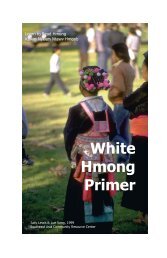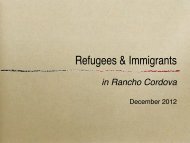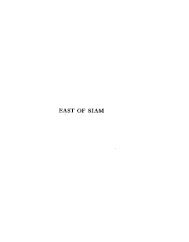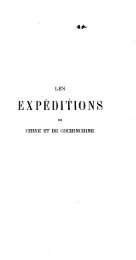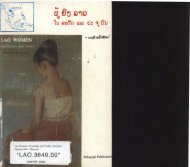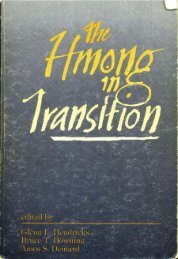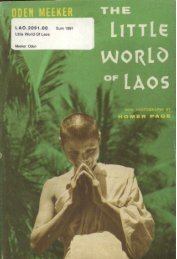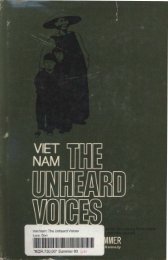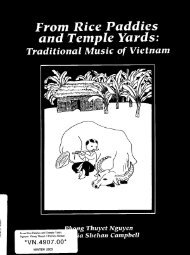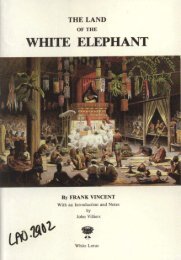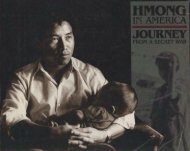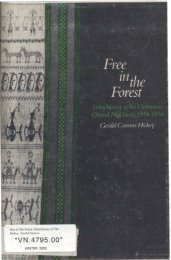PEOPLE
Grant, The Boat People - Refugee Educators' Network
Grant, The Boat People - Refugee Educators' Network
- No tags were found...
You also want an ePaper? Increase the reach of your titles
YUMPU automatically turns print PDFs into web optimized ePapers that Google loves.
for the voyage. In this case, they got frce passages for thcmsctves<br />
and thirty relatives, plus two taels of gold per adult and one tael each<br />
for minors.<br />
Thus, while the departure system and its cost varied from place<br />
to place, month to month and case to case, it had a basic uniformity.<br />
Security police screened applicants, registered drc names of rhw<br />
qualified to leave and collected payments, Although adults generally<br />
paid eight to ten taels and minors went for half fare, families cwld<br />
arrange lower prices by bribing individual security officials with<br />
vehicles, furniture and other personal possessions before rhese were<br />
officially confiscated by provincial aurhoritics. In a few cases, fm<br />
passage was permitted for Chintse without money who were considered<br />
troubkmakcrs, or those who had tried persistently to escapt<br />
'illegally', meaning without government approval.<br />
After wurity screening, some passengers had to sign declarations<br />
of intent to leave the country and waivers of futurc claims against<br />
the Socialist Republic of Vietnam. They listed their property and<br />
signed statements donating it to the government. In other cases,<br />
Chinese refugees aid they had to sign forms stating that the applicant<br />
who had applied for permission to leave wished to give all his<br />
property to the state so that he could go overseas and be reunited<br />
with his relatives. Heads of houscholds and adult males handed in<br />
biographical details and had heir photographs.and fingerprints<br />
taken, They were instructed to declare all gold and jcwcllery in their<br />
possession. (Many refugees did not makc full declarations.) Except<br />
for nvo taels of gold each, all dtclarcd valuables were confiscated.<br />
An important difference beween the exodus from south Vietnam<br />
and that from the north was thmt compulsion was more obvious in<br />
the north, The flight of refugees from northern Vietnam falls into<br />
No categories and, generally, into two different periods. The fint<br />
wave of refugees fled to China, starting id March-April 1978, and<br />
accelerating between May and late July, when China announced the<br />
closurc of its frontier with Vietnama Almost at1 those leaving were<br />
people of Chinese descent, In mid- June 1978, Peking claimed that<br />
China's southern provinces had accepted 160 000 ethnic Chinese<br />
from Vietnam. Officials in Hanoi later offered a slightly lower figure<br />
- 140000; among them were 3500 from the 13000-strong Chinew<br />
community in the Vietnamese capital.<br />
The smaller but more visible exodus from the north was by boat<br />
to Hong Kong: 60 per cent of all the boat pple who had reached<br />
the British territory by mid-August 1979 were from nonhem Vietnam<br />
and most of them were ethnic Chinese. They had begun to<br />
arrive in Hong KDng in relatively small numbers in the last months<br />
of 1978, after China closed its border, claiming that they had left<br />
Vietnam because of persecution. But the flood of northern Viemamesc<br />
into Hong Kong on small hats started after China's month-long<br />
invasion of its southern ncighbour in Febnrary-Mareh 1979. From<br />
then on, ethnic Chinese in northern Viemam were, in effect, forced<br />
to flec.<br />
As in the south, the government agency supervising departurn of<br />
rhe boat people was the PSB'S ofice of alien affairs. A refugee who<br />
had been a long-time employee of the alien affairs ofice in<br />
Haiphong, an industrial centre and pn serving Hanoi, told western<br />
officials in late 1978 that the Haiphong office was organized on the<br />
same lines as that in Ho Chi Minh Ciry. Both had subordinate units<br />
operating in cities and provinces with sizeable ethnic Chin- populations,<br />
such as Hanoi and Quang Ninh in northern Viemam, Da<br />
Nang and Quy Nhon on the central coast, and Can Tho and Bien<br />
Hoa in southern Vietnam. The traditional work of the Haiphong PSB<br />
office, he said, included the monitoring and control of alien residents<br />
and visitors. While it was managed by Vietnamese army ofken,<br />
most of the staff and informants were ethnic Chinese. He claimed<br />
that by insinuating its personnel into almost every illegal activity,<br />
such as private enterprises, smuggling and black-markettering (all<br />
of which, he claimed, were rife in the north), the ofice kept effective<br />
watch on the Chinese population.<br />
When the intense exodus from northern Vietnam swrtcd after the<br />
China-Vietnam war, ethnic Chinese in Hanoi, Hsiphong and other<br />
centres were called to meetings or visited by Vietnamew cadres. The<br />
new policy was explained: Hoa (ethnic Chinese living in Vietnam)<br />
could choose between bting sent to remote labour camps or leaving<br />
by small boat, The Chinese reacted by forming groups and appointing<br />
leaders. These organizers obtained 'letters of introduction', normally<br />
from the local SB alien affairs oflice, that permitted them to




